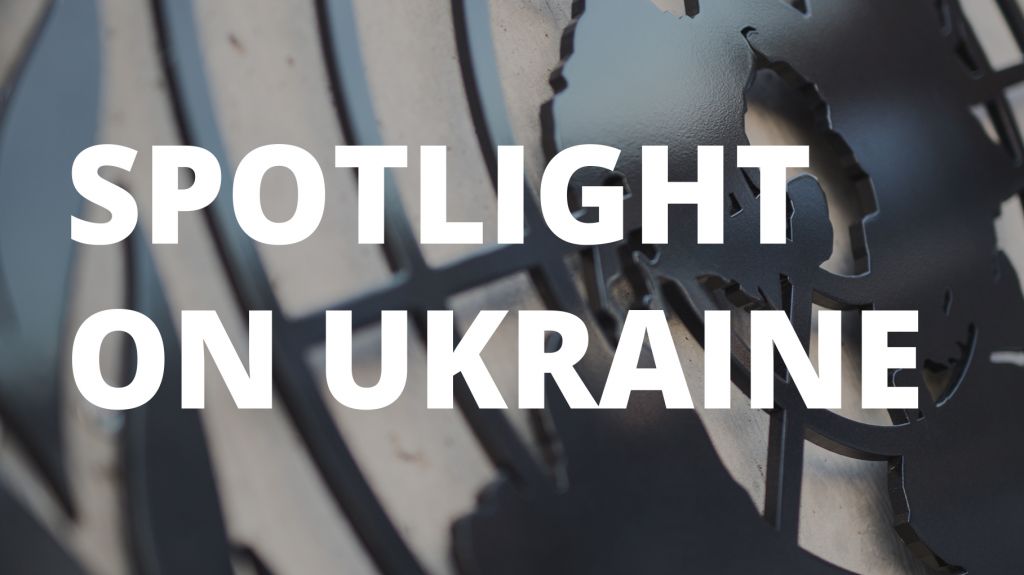Ukraine’s Universal Periodic Review (UPR) was adopted by the Human Rights Council (HRC), setting out key human rights recommendations for Ukraine, including in relation to Crimea. In a separate meeting, the Deputy High Commissioner for Human Rights provided the United Nations with an update on the overall situation in Ukraine.
“Taking into account Russia’s overall responsibility for the human right violations on the occupied territory of the Crimean peninsula, at the same time we and our partners in our joint UPR submission highlighted several areas in which the Ukrainian authorities have the possibility to take steps aimed at contributing to the improvement of the human rights situation in Crimea,” commented Tetiana Pechonchyk, Head of Board at the Human Rights Information Centre (HRIC), welcoming the outcome of the UPR process.
Pechonchyk was satisfied to see the UK and the US raise concerns included in the joint UPR submission, including recommendations that Ukraine:
- Simplify access to public administrative services for Crimean residents and enable Ukrainian citizens to move smoothly between Crimea and the rest of Ukraine;
- Support efforts to prevent human rights abuses in Crimea by facilitating access for monitors, human rights defenders, journalists, and lawyers.
“Ukraine has accepted these recommendations among others, and it is important that they now develop a strategy for implementing these recommendations. We stand ready to support their implementation,” concluded Pechonchyk.
Along with the adoption of Ukraine’s UPR, the HRC also received an update on Ukraine from the Deputy High Commissioner for Human Rights. The Deputy High Commissioner bemoaned the continued lack of access to Crimea by UN human rights monitors. She also highlighted the ongoing deeply troubling situation affecting civil society, arguing that “civil society groups who are not affiliated to Russian authorities in Crimea continued to be denied the space to undertake their activities. They cannot be registered, have no legal existence, and often have to operate semi-clandestinely.”
In addition, a number of State delegations made strong statements. Finland stated that “there are worrying reports that the human rights situation in Crimea is worsening. I urge Russia to investigate all violations, bring the perpetrators to justice and give international organisations unhindered access to the area.”
Denmark echoed this recommendation arguing, “human rights actors and monitors should be granted free access and humanitarian access ensured,” while the European Union stated that “since the illegal annexation by the Russian Federation, the human rights situation in the Crimean peninsula has deteriorated further. Residents of the peninsula face systematic restrictions of fundamental freedoms, such as freedom of expression, religion or belief and association and the right to peaceful assembly.”
Florian Irminger, Head of Advocacy at Human Rights House Foundation said, “It’s important that the human rights situation in Crimea continues to receive regular scrutiny at the international level. Russia must take steps to improve the human rights situation in Crimea, it has received a very unambiguous message from the rest of the international community to do so. Ukraine itself can continue to take steps to improve the lives of Crimeans, and the recommendations Ukraine has received at the United Nations this week provide a good framework for doing so.”
More on Ukraine





